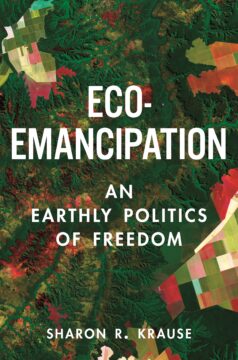Fazlul Haq in The Conversation:
 In 1995, World Bank Vice President Ismail Serageldin warned that whereas the conflicts of the previous 100 years had been over oil, “the wars of the next century will be fought over water.”
In 1995, World Bank Vice President Ismail Serageldin warned that whereas the conflicts of the previous 100 years had been over oil, “the wars of the next century will be fought over water.”
Thirty years on, that prediction is being tested in one of the world’s most volatile regions: Kashmir.
On April 24, 2025, the government of India announced that it would downgrade diplomatic ties with its neighbor Pakistan over an attack by militants in Kashmir that killed 26 tourists. As part of that cooling of relations, India said it would immediately suspend the Indus Waters Treaty – a decades-old agreement that allowed both countries to share water use from the rivers that flow from India into Pakistan. Pakistan has promised reciprocal moves and warned that any disruption to its water supply would be considered “an act of war.”
The current flareup escalated quickly, but has a long history.
More here.
Enjoying the content on 3QD? Help keep us going by donating now.

 W
W When we think about the forces that shape us, we inevitably turn to parents. The parent-child relationship is the basis of probably half a millennium’s worth of psychoanalytic conversation and intellectual discourse; parenting books are perennial best sellers, with advice that fluctuates as often as the health advice on what to eat or drink and how much. Their whiplashing instructions don’t stop many parents from reading them, and who can blame those mothers and fathers: Children are baffling, variable, not that verbal — and parents also know that if they get it wrong, their kids will blame them for just about everything.
When we think about the forces that shape us, we inevitably turn to parents. The parent-child relationship is the basis of probably half a millennium’s worth of psychoanalytic conversation and intellectual discourse; parenting books are perennial best sellers, with advice that fluctuates as often as the health advice on what to eat or drink and how much. Their whiplashing instructions don’t stop many parents from reading them, and who can blame those mothers and fathers: Children are baffling, variable, not that verbal — and parents also know that if they get it wrong, their kids will blame them for just about everything. There are philosophies of brokenness, which makes sense, given how much broken stuff disrupts the flow of our lives. How should we think about those disruptions? A practitioner of the Japanese ethic of wabi-sabi respects the beauty of brokenness: instead of trying to erase the wear and tear that accrues inevitably with time, she finds ways of acknowledging and celebrating it. In a prototypical example of the philosophy, a teacup that has fallen and shattered is reassembled through the art of kintsugi, in which lacquer, mixed with powdered gold or other metals, is used to fill the cracks; now the fractured, gilded cup tells a story of endurance, authenticity, acceptance, and care amid impermanence. Your favorite jacket, with a mended tear in its lining and the mark of an exploded pen below its pocket, has some wabi-sabi. So does your grandfather’s watch, still functional but with a scratch in its crystal. I like to imagine that the Wabi Sabi Salon, in a town near mine, helps its clients age gracefully. (I’ve never visited.)
There are philosophies of brokenness, which makes sense, given how much broken stuff disrupts the flow of our lives. How should we think about those disruptions? A practitioner of the Japanese ethic of wabi-sabi respects the beauty of brokenness: instead of trying to erase the wear and tear that accrues inevitably with time, she finds ways of acknowledging and celebrating it. In a prototypical example of the philosophy, a teacup that has fallen and shattered is reassembled through the art of kintsugi, in which lacquer, mixed with powdered gold or other metals, is used to fill the cracks; now the fractured, gilded cup tells a story of endurance, authenticity, acceptance, and care amid impermanence. Your favorite jacket, with a mended tear in its lining and the mark of an exploded pen below its pocket, has some wabi-sabi. So does your grandfather’s watch, still functional but with a scratch in its crystal. I like to imagine that the Wabi Sabi Salon, in a town near mine, helps its clients age gracefully. (I’ve never visited.) The videos “starring” the author, who died in 1976, have been made using AI-enhanced technology, licensed images and carefully restored audio recordings.
The videos “starring” the author, who died in 1976, have been made using AI-enhanced technology, licensed images and carefully restored audio recordings. The follicles at the root of each hair contain
The follicles at the root of each hair contain  When the Vietnam War finally ended on April 30, 1975, it left behind a landscape
When the Vietnam War finally ended on April 30, 1975, it left behind a landscape  Bringing nonhumans into our democracies may be less radical than it first appears. Nussbaum is quick to clarify that attending to the political voices of animals does not mean giving them a vote in our elections, which “would quickly become absurd.” Her vision is not of beleaguered pets marching down our grand boulevards demanding the vote for every Sparky, Buddy, and Princess. Rather more modestly, she proposes that “duly qualified animal ‘collaborators’ should be charged with making policy on the animals’ behalf, and bringing challenges to unjust arrangements in the courts.” The goal is not to force animals with “little interest in political participation in the human-dominated world” to suddenly take part in “elections, assemblies, and offices.” Nussbaum’s ambition, rather, is for expert guardians to give the “creatures who live in a place […] a say in how they live.”
Bringing nonhumans into our democracies may be less radical than it first appears. Nussbaum is quick to clarify that attending to the political voices of animals does not mean giving them a vote in our elections, which “would quickly become absurd.” Her vision is not of beleaguered pets marching down our grand boulevards demanding the vote for every Sparky, Buddy, and Princess. Rather more modestly, she proposes that “duly qualified animal ‘collaborators’ should be charged with making policy on the animals’ behalf, and bringing challenges to unjust arrangements in the courts.” The goal is not to force animals with “little interest in political participation in the human-dominated world” to suddenly take part in “elections, assemblies, and offices.” Nussbaum’s ambition, rather, is for expert guardians to give the “creatures who live in a place […] a say in how they live.” From a very young age, Murata never thought of her body as her own. “The grownups would always talk about whether Sayaka had childbearing hips,” she recalls. “It was almost like they were keeping an eye on my uterus, which was something that existed not for me, but for them, for the relatives.” No matter how much she tried to resolve the conflict of motherhood in her fiction, she has never escaped “this idea of being expected to reproduce for the good of the village”.
From a very young age, Murata never thought of her body as her own. “The grownups would always talk about whether Sayaka had childbearing hips,” she recalls. “It was almost like they were keeping an eye on my uterus, which was something that existed not for me, but for them, for the relatives.” No matter how much she tried to resolve the conflict of motherhood in her fiction, she has never escaped “this idea of being expected to reproduce for the good of the village”. “Restaurants will break your heart” is something that I often hear myself saying. It has become a mantra. When did I start saying it, I wonder. Maybe it was when I first discovered the criss-crossed lines of affection; falling in a crash-out kind of love with a fellow line cook because he helped me with my mise en place. Maybe it was when my sous-chef first called me mediocre; we all watched slices of chocolate cake I cut pile up in the garbage because of my disappointing quenelles. Maybe it was the first time that I had to fire a kitchen assistant over the phone, hearing him quietly murmur in response, “Okay.” Maybe (definitely) it was the time I got fired—the bad news sandwiched between my manager saying I was “amazing” and also “so great.” Maybe it was the first time I watched a plate of food I made go out and I understood, profoundly, that I would never know who might eat it.
“Restaurants will break your heart” is something that I often hear myself saying. It has become a mantra. When did I start saying it, I wonder. Maybe it was when I first discovered the criss-crossed lines of affection; falling in a crash-out kind of love with a fellow line cook because he helped me with my mise en place. Maybe it was when my sous-chef first called me mediocre; we all watched slices of chocolate cake I cut pile up in the garbage because of my disappointing quenelles. Maybe it was the first time that I had to fire a kitchen assistant over the phone, hearing him quietly murmur in response, “Okay.” Maybe (definitely) it was the time I got fired—the bad news sandwiched between my manager saying I was “amazing” and also “so great.” Maybe it was the first time I watched a plate of food I made go out and I understood, profoundly, that I would never know who might eat it. 1. ESA’s Euclid Telescope Unveils Millions of New Galaxies
1. ESA’s Euclid Telescope Unveils Millions of New Galaxies Bates’s score rings out — a wobbly, synthetic chime of sorts — you’d swear someone had pressed a power button in the orchestra pit. On Friday evening at the Kennedy Center, the Washington National Opera opened its production of Bates’s opera with a libretto by Mark Campbell — its tenth since the opera’s premiere at Santa Fe Opera in 2017. Guest conductor Lidiya Yankovskaya led the Washington National Opera Orchestra and Chorus in this revival of Tomer Zvulun’s production, here directed by Rebecca Herman.
Bates’s score rings out — a wobbly, synthetic chime of sorts — you’d swear someone had pressed a power button in the orchestra pit. On Friday evening at the Kennedy Center, the Washington National Opera opened its production of Bates’s opera with a libretto by Mark Campbell — its tenth since the opera’s premiere at Santa Fe Opera in 2017. Guest conductor Lidiya Yankovskaya led the Washington National Opera Orchestra and Chorus in this revival of Tomer Zvulun’s production, here directed by Rebecca Herman.